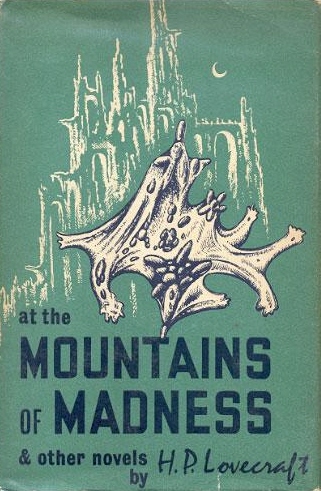
book jacket from wikipedia
Belatedly coming to novelist Michel Houellebecq's 1991 essay on Lovecraft, Against the World, Against Life. Strange argument that "those who love life do not read" and that because HPL hated life the most he is the writer who will show us the way: "a supreme antidote against all forms of realism." A strong, passionate case is made for HPL as a poetic writer.
Houellebecq delves into HPL's racism more than most critics, asserting that had the author not encountered and been repelled by the "swarthy masses" at the moment of his most dramatic personal failure (his two years in New York when he couldn't find work), he never would have retreated to Providence to write "the great texts" (8 stories listed by Houllebecq, unquestionably Lovecraft's best work) about alien entities breeding with Earthlings and otherwise meddling malignly in our affairs. No racism, no depictions of transcendent, life-hating evil.
Interestingly, African American sf writer Octavia Butler also spun metaphors from racism but instead of evil her books present aliens as agents of implacable, inevitable change. In story after story, a people or culture encounters a superior force and yields to it, becoming something new and other. Lovecraft, the self-identified Yankee patrician without money, despised change and personified it on a demonic, cosmic level. To Houllebecq this is noble, no matter how questionable or ignorant the roots (at least, I think that's what he's saying--he quotes some of HPL's worst letter-writing vitriol without the expected layers of apology). According to Houllebecq, once the great texts were vomited out, the personal racism abated -- or at least, HPL changed his mind about admiring Hitler.
Houllebecq notes that HPL avoids two topics: sex and money. (This led John Banville a few years ago to wonder why Houllebecq liked Lovecraft so much.) I would add, HPL's stories cloak their politics almost to invisibility, regardless of the author's privately-expressed views.

